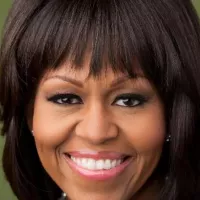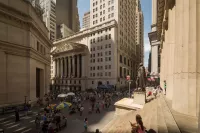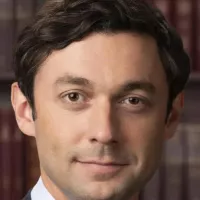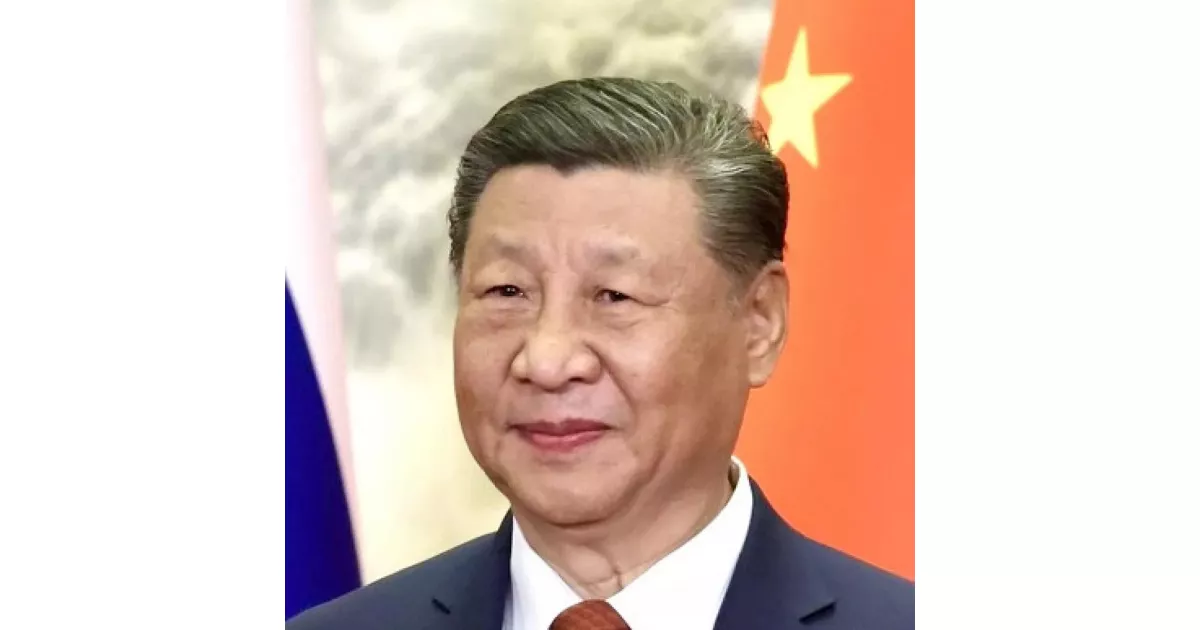A closer look at the defining struggles that shaped Xi Jinping's life and career.
Xi Jinping is the paramount leader of China, holding the positions of General Secretary of the Chinese Communist Party (CCP) and Chairman of the Central Military Commission (CMC) since 2012, and President of China since 2013. He is a member of the fifth generation of Chinese leadership and the first CCP General Secretary born after the establishment of the People's Republic of China (PRC).
1963: Father Purged from CCP
In 1963, when Xi Jinping was ten years old, his father was purged from the CCP and sent to work in a factory in Luoyang, Henan.
May 1966: Cultural Revolution Halts Education
In May 1966, the Cultural Revolution cut short Xi Jinping's secondary education. Student militants ransacked the Xi family home, and one of Xi's sisters, Xi Heping, was persecuted to death.
1968: Father Imprisoned, Xi Applies to Leave for Countryside
In 1968, Xi Jinping's father was imprisoned when Xi was 15. Xi submitted an application to leave Beijing for the countryside.
January 13, 1969: Arrival in Liangjiahe Village
On January 13, 1969, Xi Jinping arrived in Liangjiahe Village, Yan'an, Shaanxi, as part of Mao Zedong's Down to the Countryside Movement.
June 2012: Bloomberg News report on family business interests
In June 2012, Bloomberg News reported on the business interests of Xi Jinping's extended family.
September 2012: Disappearance from Official Media and Reappearance
Beginning on 1 September 2012, Xi Jinping disappeared from official media coverage and cancelled meetings with foreign officials for several weeks, causing rumors, before reappearing on 15 September.
November 2012: Brother-in-law had shell companies
By November 2012, Deng Jiagui, Xi Jinping's brother-in-law, had two shell companies in the British Virgin Islands, which became dormant by the time Xi became general secretary of the CCP.
2012: Beginning of Offensive on Human Rights
According to Human Rights Watch, Xi Jinping "started a broad and sustained offensive on human rights" since he became leader in 2012.
2013: Terrorist Attacks in Xinjiang
In 2013, Xinjiang experienced several terrorist attacks, leading to the Strike Hard Campaign.
2013: Enactment of restrictive law and blogger censorship
In 2013, a law was enacted authorizing a three-year prison term for bloggers who shared content considered "defamatory" more than 500 times. The State Internet Information Department also summoned influential bloggers to a seminar, instructing them to avoid writing about politics, the CCP, or statements contradicting official narratives. This led to many bloggers ceasing to write about controversial topics and a decline in Weibo's popularity.
August 2014: NPCSC Decision on Hong Kong Chief Executive Election
In August 2014, the Standing Committee of the National People's Congress (NPCSC) decided to allow universal suffrage for the 2017 election of Hong Kong's chief executive, with requirements for candidates to "love the country, and love Hong Kong," leading to protests and the eventual rejection of the reform bill.
2014: Integration of Hong Kong to Mainland China
In 2014, Xi Jinping supported a greater integration of Hong Kong into mainland China through projects like the Hong Kong–Zhuhai–Macau Bridge and the Greater Bay Area project. A white paper by the State Council in 2014 outlined that the China's central government has "comprehensive jurisdiction" over Hong Kong.
2014: Launch of Strike Hard Campaign Against Violent Terrorism
In 2014, following terrorist attacks in Xinjiang in 2013 and 2014, Xi Jinping launched the Strike Hard Campaign Against Violent Terrorism, involving mass detention and surveillance of ethnic Uyghurs.
July 2015: 709 Crackdown
On 9 July 2015, Xi Jinping presided over the 709 crackdown, which led to the detention of more than 200 lawyers, legal assistants, and human rights activists.
2015: Chinese stock market bubble burst
In 2015, the Chinese stock market bubble popped, leading Xi Jinping to use state forces to fix it.
2017: Stalling of economic reforms
By 2017, experts said that Xi Jinping's promise of economic reforms had stalled.
2017: Replacement of Jesus Pictures with Xi Jinping
In 2017, the local government of the Jiangxi province told Christians to replace their pictures of Jesus with Xi Jinping as part of a campaign on unofficial churches.
January 2018: Launched Campaign to Crack Down on Organized Crime and Eliminate Evil
In January 2018, Xi Jinping launched a three-year Special Campaign to Crack Down on Organized Crime and Eliminate Evil that lasted until 2020.
2018: Creation of performance-review system
In 2018, Xi Jinping created a performance-review system to evaluate officials on various measures, including loyalty.
January 2019: Xi's Call to Taiwan on Rejecting Independence
In January 2019, Xi Jinping called on Taiwan to reject formal independence from China, reserving the option of using force and rejecting any form of separatist activities. President Tsai responded by saying Taiwan would not accept a "one country, two systems" arrangement.
April 2019: Wikipedia Blocked in China
In April 2019, during Xi Jinping's administration, all versions of Wikipedia were blocked in China.
November 2019: Leaked Documents Show Xi Ordered Xinjiang Crackdown
In November 2019, internal Chinese government documents leaked to the press showed that Xi Jinping personally ordered a security crackdown in Xinjiang, advocating for "absolutely no mercy" and using "weapons of the people's democratic dictatorship."
December 2019: Xi's Warning Against Foreign Interference in Hong Kong and Macau
In December 2019, while visiting Macau for the 20th anniversary of its return to China, Xi Jinping warned against foreign forces interfering in Hong Kong and Macau, hinting that Macau could be a model for Hong Kong to follow.
2019: Scaling Back Affirmative Action
By 2019, the CCP scaled back affirmative action in the country toward ethnic minorities.
2019: Drop in Uyghur Birth Rate
By 2019, the Strike Hard Campaign included a birth suppression campaign that led to a large drop in the Uyghur birth rate.
January 2020: Presided over Zero-COVID Policy
From January 2020, following the onset of the COVID-19 pandemic in mainland China, Xi Jinping initially presided over a zero-COVID policy.
January 2020: Xi's Initial Comments on COVID-19 Pandemic
On 20 January 2020, Xi Jinping commented for the first time on the emerging COVID-19 pandemic in Wuhan and ordered "efforts to curb the spread" of the virus. On 28 January, he met with Tedros Adhanom Ghebreyesus, the director-general of the World Health Organization (WHO).
July 2020: CCP Announced Campaign to Educate and Rectify Political and Legal Teams
In July 2020, after the special campaign exposed problems in the legal system, the CCP announced a campaign to educate and rectify the political and legal teams.
2020: Detainment of 1.8 Million People in Internment Camps
By 2020, the Strike Hard Campaign included the detainment of 1.8 million people in internment camps, mostly Uyghurs and other ethnic and religious minorities.
2020: Halt to Ant Group's IPO
In 2020, The Wall Street Journal reported that Xi Jinping ordered a halt to Ant Group's initial public offering (IPO), in reaction to its founder Jack Ma criticizing government regulation in finance.
2020: Oversee Passage of National Security Law in Hong Kong
In 2020, Xi Jinping oversaw the passage of a national security law in Hong Kong, which clamped down on political opposition, especially pro-democracy activists.
2020: Support for Hong Kong Police Against Protesters
In 2020, Xi Jinping supported the Hong Kong government and police against protesters, defending the use of force and calling for punishment for those committing violent crimes.
2020: Statement on number of people living with less than 1000 yuan a month
In 2020, premier Li Keqiang, citing the National Bureau of Statistics (NBS) said that China still had 600 million people living with less than 1000 yuan ($140) a month.
2020: National Security Law Passed in Hong Kong
In 2020, the NPCSC passed a national security law in Hong Kong, which significantly restricted political opposition and established a central government office to oversee enforcement.
October 2021: Changes to Minority Education Rights
In October 2021, a wording was scrapped guaranteeing the rights of minority children to be educated in their native language, replaced with one emphasizing the national language.
2021: Crackdown Against Tech and Tutoring Sectors
In 2021, Xi Jinping directed a broad crackdown against the tech and tutoring sectors.
2021: Beginning of the property sector crisis
Since 2021, China has faced a property sector crisis, with decreasing house prices, shrinking of the real estate sector and bankruptcies of many property developers.
November 2022: Protests Against China's COVID-19 Policies
In November 2022, protests broke out against China's COVID-19 policies, triggered by a fire in Ürümqi. Some protesters demanded the end of Xi's and the CCP's rule.
December 2022: Shift Towards COVID-19 Mitigation Strategy
In December 2022, Xi Jinping shifted from the zero-COVID policy towards a mitigation strategy.
2023: Officials Prosecuted in Anti-Corruption Campaign
As of 2023, approximately 2.3 million government officials have been prosecuted as part of Xi Jinping's anti-corruption campaign.
2023: Expressed uncertainty about the national soccer team's abilities
In 2023, Xi Jinping expressed uncertainty about the capabilities of the national soccer team.
Mentioned in this timeline

Vladimir Vladimirovich Putin is a Russian politician and former intelligence...

Michelle Obama an American attorney and author served as the...

Barack Obama the th U S President - was the...

Joe Biden is an American politician who served as the...

The stock market is where buyers and sellers trade stocks...
Qatar is a country located on the Qatar Peninsula in...
Trending

2 hours ago Maya Hawke and Christian Lee Hutson celebrated wedding with Stranger Things cast present.
2 hours ago Wizz Air Launches New Larnaka-Barcelona Flights, Boosting Tourism for Cyprus and Spain.

2 hours ago Jon Ossoff criticizes Trump, speech goes viral, fueling 2028 'Front Runner' speculation.
4 hours ago ANTM's controversies are revealed in a new Netflix documentary, with Tyra Banks facing criticism.
4 hours ago EU monitors Albania's legal changes: Concerns raised over Rama's SPAK amendment.
5 hours ago Arkansas State Police sees 29% drop in high-speed pursuits due to law changes.
Popular

Jesse Jackson is an American civil rights activist politician and...
Randall Adam Fine is an American politician a Republican who...

Pam Bondi is an American attorney lobbyist and politician currently...

Barack Obama the th U S President - was the...

Martin Luther King Jr was a pivotal leader in the...

Ken Paxton is an American politician and lawyer serving as...
